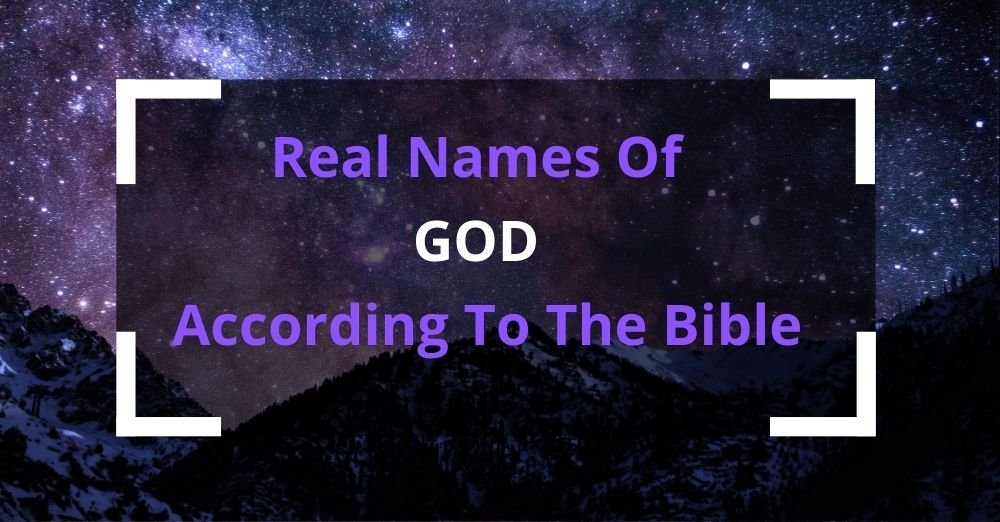
Many people are familiar with the Holy Trinity concept in that the Son (Jesus) is God, the Father is God and the Holy Spirit is God.
Although we can’t fully grasp this concept as God is infinitely greater than we are, we can understand the actual names of God and what they stand for according to scripture.
Whether it’s “God Elohim”, “El Elyon” or “El Shaddai”, each name of God reveals a different aspect of His character.
In this article, we’ll list God’s names as found in the Old Testament and New Testament of the Bible, their meaning and what the only proper name for God is!
Names of God in the Old Testament

Below are the names of God as they appear in the Old Testament:
- Yahweh – God’s Primary Name
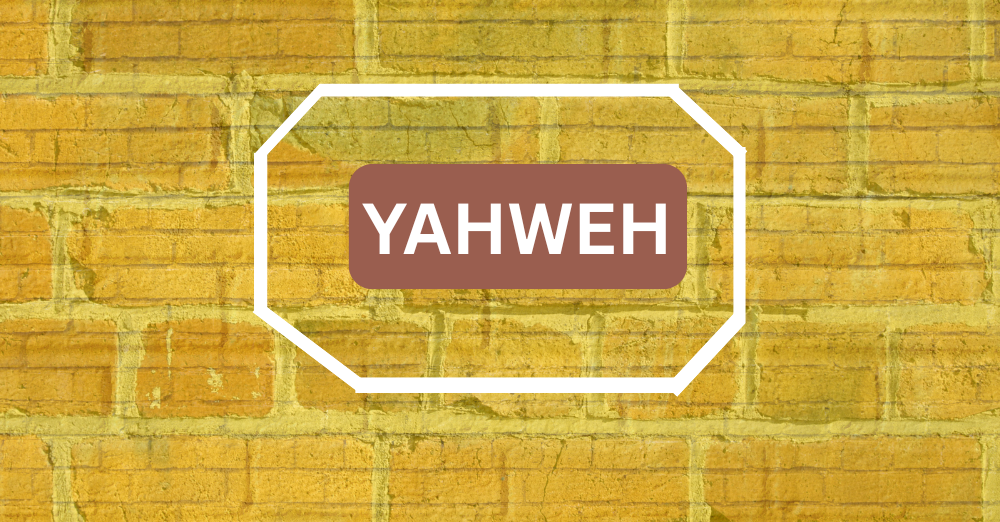
- Pronunciation: yah-weh
- Meaning: The LORD
- Alternative Spelling: YHWH, Jehovah
Yahweh, also known as YHWH or Jehovah, is regarded as God’s supreme name, emphasizing His eternal existence and nearness.
In Exodus 3:14, God reveals this name to Moses, declaring, “I Am That I Am.” In English Bibles, Yahweh is translated as LORD (in all capitals), distinct from Adonai, which also means Lord but is not capitalized.
Notably, YHWH first appears in Genesis 2:4 and is called the Tetragrammaton, referring to its four Hebrew letters.
- Yahweh-Yireh
- Pronunciation: yah-weh-yi-reh
- Meaning: The LORD Provides
- Alternative Spelling: Jehovah-Yireh
Yahweh-Yireh reflects God’s provision, as seen in Genesis 22:14 when God provides a ram to spare Isaac from sacrifice. Abraham named the location “The LORD Provides,” and Genesis 22:14 notes, “to this day it is said, ‘On the mountain of the LORD, it will be provided.’”
- Yahweh-Rapha
- Pronunciation: yah-weh-rah-fah
- Meaning: The LORD Who Heals
- Alternative Spelling: Jehovah-Rapha, Jehovah-Rophi
In Exodus 15:26, God declares Himself as the Healer, mending both physical ailments and spiritual brokenness through forgiveness. The Hebrew term “Rapha” means “to heal” or “to restore,” and when paired with Yahweh, it signifies “The LORD Our Healer.”
- Yahweh-Nissi
- Pronunciation: yah-weh-nis-see
- Meaning: The LORD Our Banner
- Alternative Spelling: Jehovah-Nissi
Derived from the Hebrew “Nes” (banner), Yahweh-Nissi appears in Exodus 17:15, where Moses acknowledges God as the rallying point for Israel’s victory over the Amalekites.
- Yahweh-Mekaddishkem
- Pronunciation: yah-weh-meh-kad-ish-kem
- Meaning: The LORD Who Makes You Holy
- Alternative Spelling: Jehovah-Mekaddishkem
The term “mekaddishkem” comes from “qadash,” meaning “to sanctify” or “to make holy.” God’s sanctifying power is evident in Leviticus 20:8 and Ezekiel 37:28, showing He alone consecrates His people.
- Yahweh-Shalom

- Pronunciation: yah-weh-shah-lome
- Meaning: The LORD Is Peace
The Hebrew word “Shalom,” from “shalem” (complete), denotes peace or freedom from conflict. Yahweh-Shalom is found in Judges 6:24, symbolizing God’s gift of tranquility.
- Yahweh-Elohim
- Pronunciation: yah-weh-el-o-hem
- Meaning: The LORD God
Combining Yahweh (YHWH) with Elohim (God, Creator, Judge), this name appears in Genesis 2:4 and Psalm 59:5, emphasizing God’s sovereignty and creative power.
- Yahweh-Tsidkenu
- Pronunciation: yah-weh-tsid-ken-oo
- Meaning: The LORD Our Righteousness
- Alternative Spelling: Jehovah-Tsidkenu
From the Hebrew “Tsedek” (righteousness), Yahweh-Tsidkenu, found in Jeremiah 33:16, portrays God as the source of our righteousness.
- Yahweh-Raah
- Pronunciation: yah-weh-roh-hee
- Meaning: The LORD Our Shepherd
- Alternative Spelling: Jehovah-Raah, Yahweh-Rohi
Rooted in “Ro’eh” (shepherd), this name is used by David in Psalm 23:1 to describe God as a caring guide. It can also mean “friend” or “companion,” rendering Yahweh-Raah as “The LORD My Friend.”
- Yahweh-Shammah
- Pronunciation: yah-weh-sham-mah
- Meaning: The LORD Is Present
- Alternative Spelling: Jehovah-Shammah
From “sham” (there), Yahweh-Shammah refers to God’s presence in Jerusalem, as noted in Ezekiel 48:35, signifying His return to the city.
- Yahweh-Sabaoth
- Pronunciation: yah-weh-sab-ay-oth
- Meaning: The LORD of Hosts
“Sabaoth” means “armies,” indicating God’s authority over all forces, earthly and spiritual. This name appears in Psalm 46:7 and Isaiah 1:24.
- Immanuel

- Pronunciation: im-man-yoo-el
- Meaning: God With Us
- Alternative Spelling: Emmanuel
Found in Isaiah 7:14, Immanuel prophesies the coming of Jesus, God incarnate.
- Adonai
- Pronunciation: ad-o-nai
- Meaning: Lord, Master
Adonai, meaning Lord (not in all capitals), was used instead of YHWH, deemed too sacred to pronounce. It appears when God interacts with Gentiles, unlike YHWH, used with Israelites. “Adonai” is the plural of “adon” (human lord), reserved for God.
- Elohim
- Pronunciation: el-o-heem
- Meaning: God, Creator, Judge
Elohim, a common name for God, appears frequently in the Old Testament. Scholars debate its roots, possibly from “eloah” or “el,” but it consistently denotes God’s divine authority.
- Elohim Chaseddi
- Pronunciation: el-o-heem-khas-dee
- Meaning: The God of My Lovingkindness
Combining Elohim and “chaseddi” (mercy), this name is found in Psalm 59:10, highlighting God’s compassion.
- El Elohe Yisrael
- Pronunciation: el-el-o-heh-yis-rah-el
- Meaning: The Mighty God of Israel
- Alternative Spelling: El-Elohe-Israel
In Genesis 33:20, Jacob names an altar El Elohe Yisrael, honoring God’s might over Israel.
- El Emunah
- Pronunciation: el-em-oo-nah
- Meaning: The Faithful God
Deuteronomy 7:9 calls God El Emunah, faithful to His covenant across generations.
- Elohei Tehillati
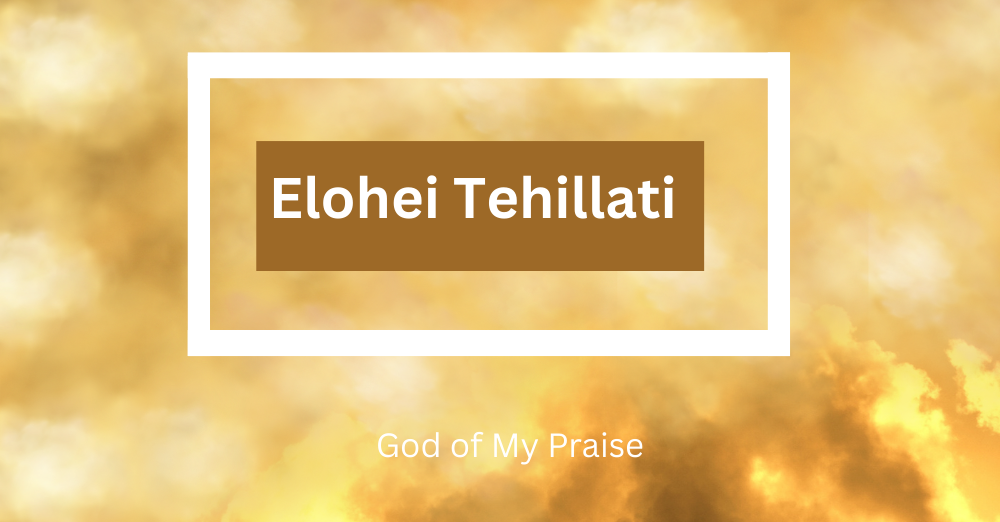
- Pronunciation: el-o-heh-tee-hil-lah-tee
- Meaning: God of My Praise
From “Elohei” (God) and “tehillati” (praise), this name in Psalm 109:1 portrays God as the source of worship.
- El Hakabodh
- Pronunciation: el-hak-ah-bod
- Meaning: The God of Glory
Psalm 29:3 describes God as El Hakabodh, whose glory resounds over creation.
- Elohim Chayim
- Pronunciation: el-o-heem-khai-yim
- Meaning: The Living God
In Joshua 3:10, Elohim Chayim is the God who empowers Israel to conquer their enemies.
- El Hayyay
- Pronunciation: el-hai-yai
- Meaning: God of My Life
Psalm 42:8 names God El Hayyay, the sustainer of life.
- Elohim Kedoshim
- Pronunciation: el-o-heem-ked-o-sheem
- Meaning: The Holy God
Joshua 24:19 refers to God as Elohim Kedoshim, emphasizing His holiness.
- Elohei Ma’uzzi
- Pronunciation: el-o-heh-mah-oo-zee
- Meaning: God of My Strength
In 2 Samuel 22:33, God is Elohei Ma’uzzi, a fortress of strength.
- Elohim Machase Lanu

- Pronunciation: el-o-heem-mah-khase-lah-noo
- Meaning: God Our Refuge
Psalm 62:8 encourages trust in Elohim Machase Lanu, our shelter.
- Eli Maelekhi
- Pronunciation: ee-lai-mal-ekh-ee
- Meaning: God My King
Psalm 68:24 declares God as Eli Maelekhi, the sovereign ruler.
- El Nekamoth
- Pronunciation: el-nek-ah-moth
- Meaning: God Who Avenges
Psalm 18:47 portrays God as El Nekamoth, who delivers justice.
- Elohenu Olam
- Pronunciation: el-o-heh-noo-o-lam
- Meaning: Our Eternal God
Psalm 48:14 names God Elohenu Olam, everlasting forever.
- Elohim Ozer Li
- Pronunciation: el-o-heem-o-zer-lee
- Meaning: God My Helper
Psalm 54:4 calls God Elohim Ozer Li, who sustains us.
- El Sali
- Pronunciation: el-sah-lee
- Meaning: God, My Rock
In 2 Samuel 22:47, David names God El Sali, his steadfast foundation.
- Elohim Shophtim Ba-arets
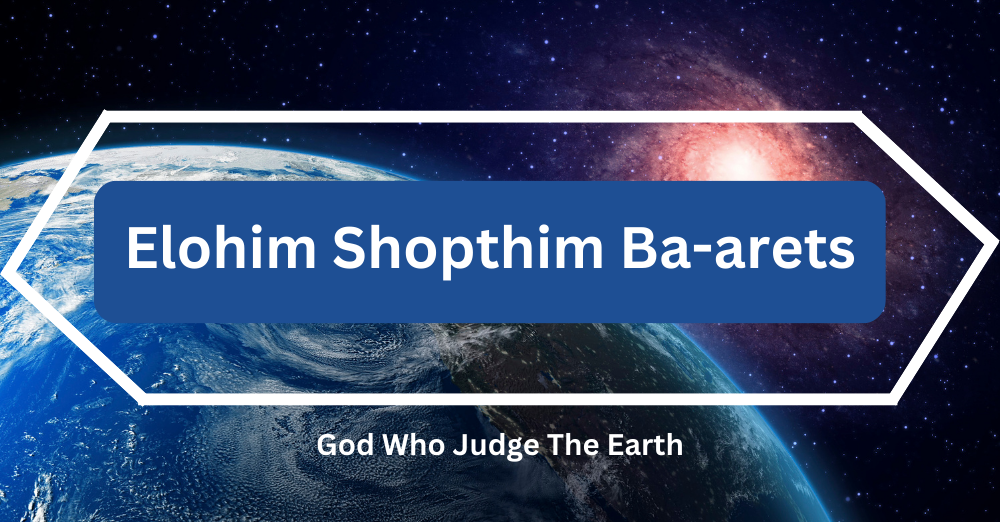
- Pronunciation: el-o-heem-shop-teem-bah-ah-rets
- Meaning: God Who Judges the Earth
Psalm 58:11 affirms God as Elohim Shophtim Ba-arets, the righteous judge.
- El Simchath Gili
- Pronunciation: el-sim-khath-gee-lee
- Meaning: God My Joy
Psalm 43:4 praises God as El Simchath Gili, the source of exceeding joy.
- Elohe Tishuathi
- Pronunciation: el-o-heh-tish-oo-ah-tee
- Meaning: God of My Salvation
Psalm 51:14 names God Elohe Tishuathi, the deliverer.
- Elohe Yakob
- Pronunciation: el-o-heh-yah-kob
- Meaning: God of Jacob
- Alternative Spelling: Elohe Jacob
Psalm 20:1 refers to God as Elohe Yakob, the God of Israel’s patriarch.
- Elohei Marom
- Pronunciation: el-o-heh-mah-rom
- Meaning: The Exalted God
Micah 6:6 calls God Elohei Marom, high above all.
- Elohei Haelohim
- Pronunciation: el-o-heh-hah-el-o-heem
- Meaning: The God of Gods
Deuteronomy 10:17 names God Elohei Haelohim, supreme over all deities.
- El Shaddai

- Pronunciation: el-shad-dai
- Meaning: God Almighty
Combining “el” (God) and “shaddai” (possibly “mountain” or “breast”), El Shaddai, first seen in Genesis 17:1, signifies God’s all-powerful provision and blessing.
- El Elyon
- Pronunciation: el-el-yon
- Meaning: The Most High God
With “elyon” meaning “highest,” El Elyon, found 28 times in the Old Testament, underscores God’s supreme authority.
- El Roi
- Pronunciation: el-roh-ee
- Meaning: The God Who Sees
In Genesis 16:13, Hagar names God El Roi, affirming He sees all.
- El-Olam
- Pronunciation: el-o-lam
- Meaning: The Eternal God
From “olam” (eternity), El-Olam in Psalm 90:1-3 reveals God’s timeless nature.
- El-Gibhor
- Pronunciation: el-gib-bor
- Meaning: Mighty God
Isaiah 9:6 uses El-Gibhor to describe the Messiah, Jesus.
- El Bethel
- Pronunciation: el-beth-el
- Meaning: God of the House of God
- Alternative Spelling: El-Bethel
In Genesis 35:7, Jacob names an altar El Bethel, where God revealed Himself.
- Jehovah Adon Kol Ha-arets

- Pronunciation: jeh-ho-vah-ad-on-kol-hah-ah-rets
- Meaning: The Lord of All the Earth
Joshua 3:11 calls God Jehovah Adon Kol Ha-arets during Israel’s Jordan crossing.
- Jehovah Chereb
- Pronunciation: jeh-ho-vah-kher-eb
- Meaning: The LORD, the Sword
Deuteronomy 33:29 describes God as Jehovah Chereb, a mighty weapon.
- Jehovah Gibbor Milchamah
- Pronunciation: jeh-ho-vah-gib-bor-mil-kham-ah
- Meaning: The LORD Mighty in Battle
- Alternative Spelling: Jehovah-Gibbor-Milchamah
Psalm 24:8 names God Jehovah Gibbor Milchamah, a powerful warrior.
- Jehovah Goelekh
- Pronunciation: jeh-ho-vah-go-el-ekh
- Meaning: The LORD Your Redeemer
Isaiah 60:16 portrays God as Jehovah Goelekh, the Savior.
- Jehovah Elohim
- Pronunciation: jeh-ho-vah-el-o-heem
- Meaning: The LORD God
- Alternative Spelling: YHWH Elohim
Genesis 2:4 names God Jehovah Elohim, Creator of all.
- Jehovah Elohim Ab
- Pronunciation: jeh-ho-vah-el-o-heem-ab
- Meaning: The LORD God of Your Ancestors
- Alternative Spelling: YHWH Elohim Ab
Joshua 18:3 refers to God as Jehovah Elohim Ab, the God of Israel’s forefathers.
- Jehovah El Emeth

- Pronunciation: jeh-ho-vah-el-em-eth
- Meaning: The LORD God of Truth
Psalm 31:5 calls God Jehovah El Emeth, the embodiment of truth.
- Jehovah El Gemuwal
- Pronunciation: jeh-ho-vah-el-gem-oo-wal
- Meaning: The LORD God of Recompense
From “gemuwal” (recompense), this name in Jeremiah 51:56 highlights God’s justice.
- Elohei Mikkarov
- Pronunciation: el-o-heh-mik-kah-rov
- Meaning: The God Who Is Near
Jeremiah 23:23 declares God as Elohei Mikkarov, ever-present.
- Elohim Bashamayim
- Pronunciation: el-o-heem-bash-shah-mai-yim
- Meaning: God in Heaven
Joshua 2:11 names God Elohim Bashamayim, ruler of the heavens
- Hashopet
- Pronunciation: hash-sho-pet
- Meaning: The Judge
Judges 11:27 affirms God as Hashopet, the ultimate arbiter.
- Jehovah Immeka
- Pronunciation: jeh-ho-vah-im-meh-kah
- Meaning: The LORD Is With You
In Judges 6:12, an angel calls God Jehovah Immeka, present with His people.
- Sar Shalom

- Pronunciation: sar-shah-lome
- Meaning: Prince of Peace
Isaiah 9:6 prophesies Jesus as Sar Shalom, the bringer of peace.
- Peleh Yo’etz
- Pronunciation: peh-leh-yo-etz
- Meaning: Wonderful Counselor
Also in Isaiah 9:6, Peleh Yo’etz describes Jesus, the divine advisor.
- Moshiekh
- Pronunciation: mo-shee-ekh
- Meaning: Savior
Isaiah 49:26 names God Moshiekh, Redeemer of all.
- Ruach Hakkodesh
- Pronunciation: roo-akh-hak-ko-desh
- Meaning: Holy Spirit
Psalm 51:11 acknowledges the Holy Spirit as part of God’s triune nature.
- Go’el
- Pronunciation: go-el
- Meaning: Redeemer
Exodus 15:13 calls God Go’el, who leads His people to redemption.
- Kadosh
- Pronunciation: kah-dosh
- Meaning: The Holy One
Isaiah 40:25 declares God as Kadosh, unmatched in holiness.
- Ruach Elohim

- Pronunciation: roo-akh-el-o-heem
- Meaning: The Spirit of God
In 1 Samuel 10:10, Ruach Elohim empowers Samuel mightily.
- Jehovah Tsemach
- Pronunciation: jeh-ho-vah-tseh-makh
- Meaning: The Branch of the LORD
Isaiah 4:2 names God Jehovah Tsemach, a messianic title.
- Esh Oklah
- Pronunciation: esh-ok-lah
- Meaning: Consuming Fire
Deuteronomy 4:24, echoed in Hebrews, describes God as Esh Oklah, a holy fire.
- ‘Or Goyim
- Pronunciation: or-go-yim
- Meaning: Light of the Nations
Isaiah 42:6 applies ‘Or Goyim to Jesus, the light for all.
- ‘Ab
- Pronunciation: ab
- Meaning: Father
Psalm 68:5 calls God ‘Ab, a father to the fatherless.
- Qanna
- Pronunciation: kan-nah
- Meaning: Jealous, Zealous
Meaning “jealous” or “zealous,” Qanna in Exodus 20:5 reflects God’s passionate commitment, likened to a husband (Isaiah 54:5).
- El Bethel
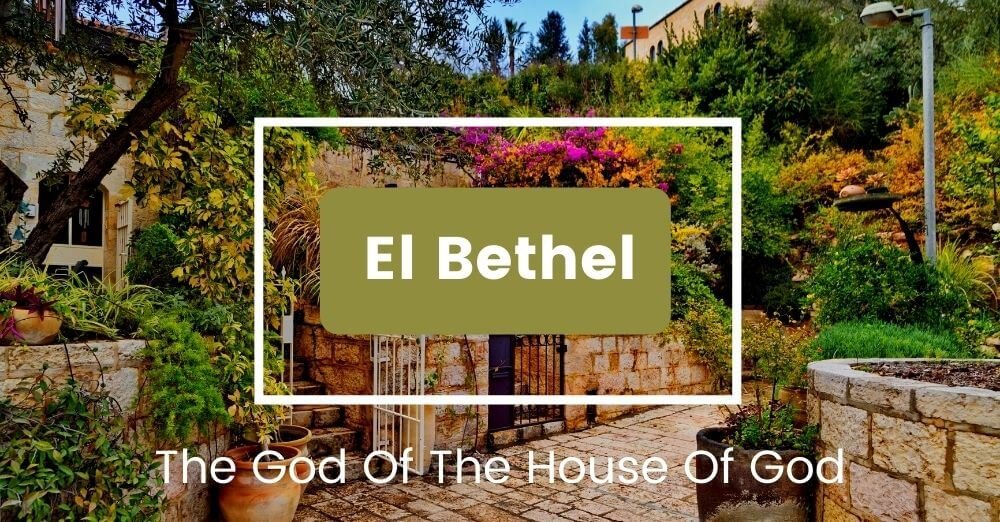
- Pronunciation: el-beth-el
- Meaning: God of the House of God
Genesis 35:7 records Jacob naming an altar El Bethel, where God appeared.
Names of God in the New Testament
The following are names of God found in the New Testament:
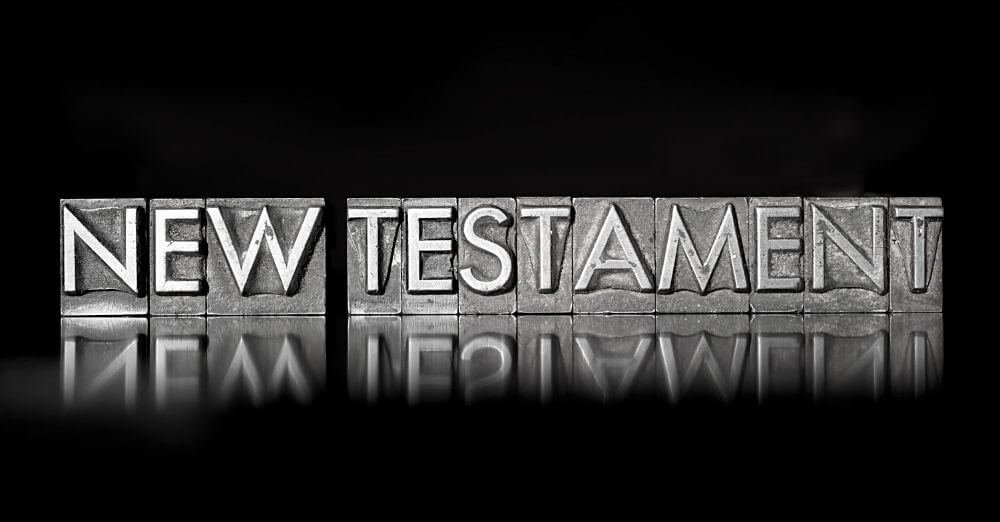
- Advocate (1 John 2:1)
- Almighty (Revelation 1:8)
- Alpha (Revelation 1:8)
- Amen (Revelation 3:14)
- Apostle (Hebrews 3:1)
- Author and Perfecter of Faith (Hebrews 12:2)
- Beginning (Revelation 21:6)
- Bishop of Souls (1 Peter 2:25)
- Bread of Life (John 6:35, 48)
- Bridegroom (Matthew 9:15)
- Carpenter (Mark 6:3)
- Chief Shepherd (1 Peter 5:4)
- The Christ (Matthew 1:16)
- Consolation of Israel (Luke 2:25)
- Consuming Fire (Hebrews 12:29)
- Cornerstone (Ephesians 2:20)
- Dayspring (Luke 1:78)
- Deliverer (Romans 11:26)
- Emmanuel (Matthew 1:23)
- End (Revelation 21:6)
- Faithful and True Witness (Revelation 3:14)
- First Fruits (1 Corinthians 15:23)
- Friend of Sinners (Matthew 11:19)
- Gate for the Sheep (John 10:7)
- Gift of God (2 Corinthians 9:15)
- Good Shepherd (John 10:11)
- Governor (Matthew 2:6)
- Great Shepherd (Hebrews 13:20)
- Head of the Church (Colossians 1:18)
- High Priest (Hebrews 3:1)
- Horn of Salvation (Luke 1:69)
- Jesus (Matthew 1:21)
- King of Israel (Matthew 27:42)
- King of Kings (1 Timothy 6:15; Revelation 19:16)
- Lamb of God (John 1:29)
- Last Adam (1 Corinthians 15:45)
- Life (John 11:25)
- Light of the World (John 8:12; 9:5)
- Lion of the Tribe of Judah (Revelation 5:5)
- Lord of Lords (1 Timothy 6:15; Revelation 19:16)
- Master (Matthew 23:8)
- Mediator (1 Timothy 2:5)
- Messiah (John 1:41)
- Morning Star (2 Peter 1:19; Revelation 22:16)
- Nazarene (Matthew 2:23)
- Omega (Revelation 1:8)
- Passover Lamb (1 Corinthians 5:7)
- Physician (Matthew 9:12)
- Potentate (1 Timothy 6:15)
- Priest (Hebrews 4:15)
- Prophet (Acts 3:22)
- Propitiation (1 John 2:2)
- Rabbi (John 1:49)
- Ransom (1 Timothy 2:6)
- Resurrection (John 11:25)
- Root of David (Revelation 22:16)
- Ruler of God’s Creation (Revelation 3:14)
- Sacrifice (Ephesians 5:2)
- Savior (Luke 1:47)
- Second Adam (1 Corinthians 15:47)
- Seed of Abraham (Galatians 3:16)
- Seed of David (2 Timothy 2:8)
- Shepherd (1 Peter 2:25)
- Son of David (Matthew 15:22)
- Son of God (Luke 1:35)
- Son of Man (Matthew 18:11)
- Son of Mary (Mark 6:3)
- Son of the Most High (Luke 1:32)
- Teacher (Matthew 26:18)
- Truth (John 14:6)
- Way (John 14:6)
- Word (John 1:1)
- Vine (John 15:1)